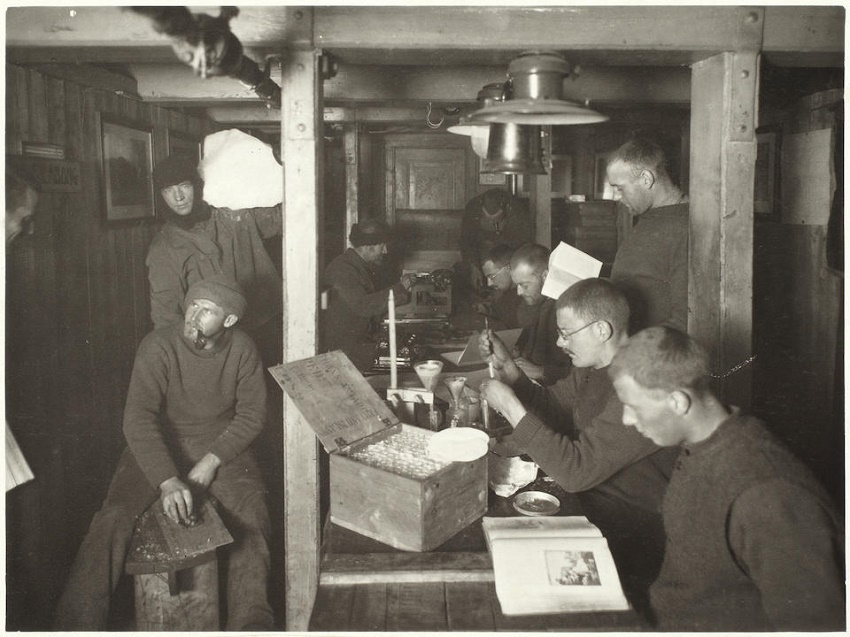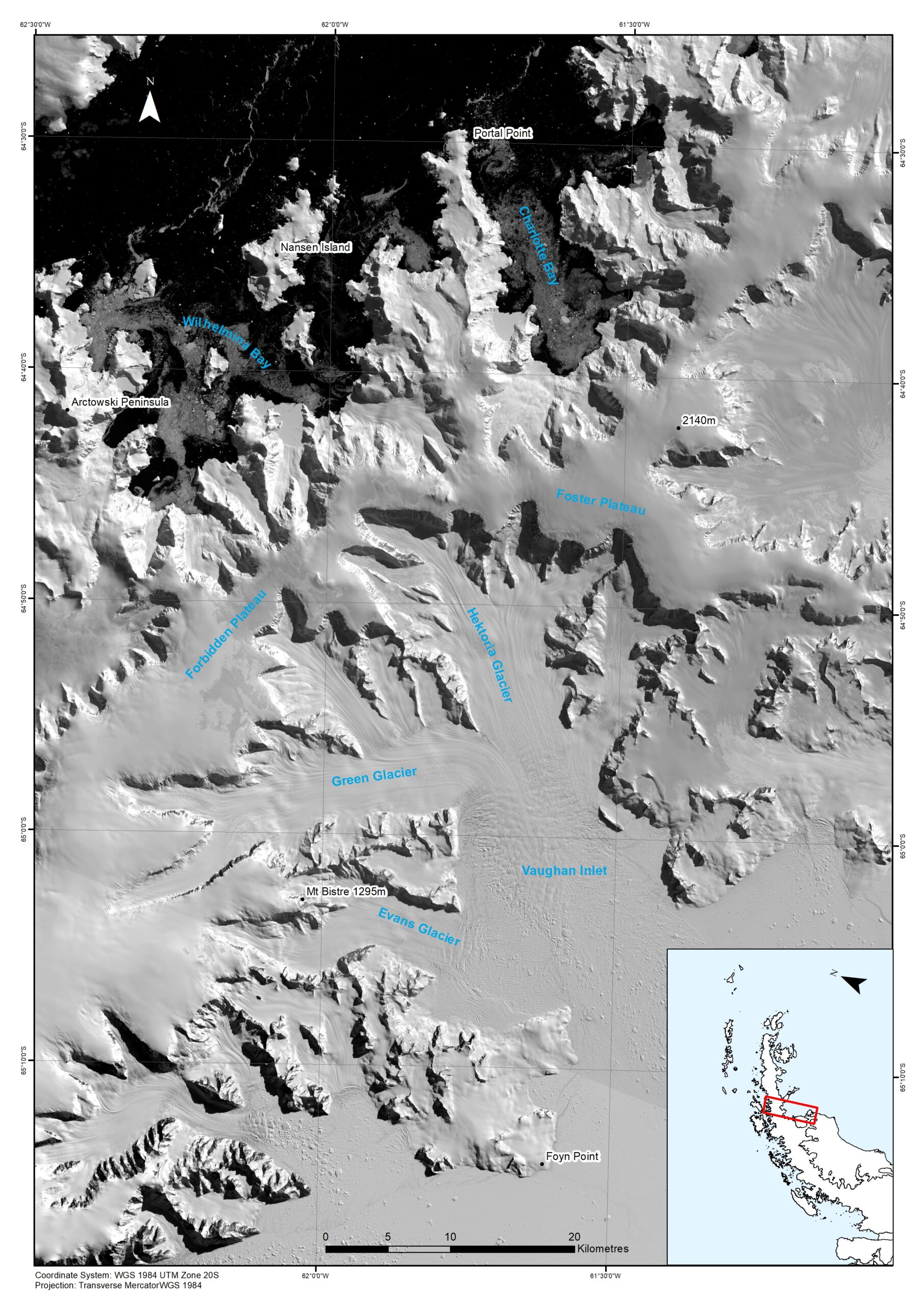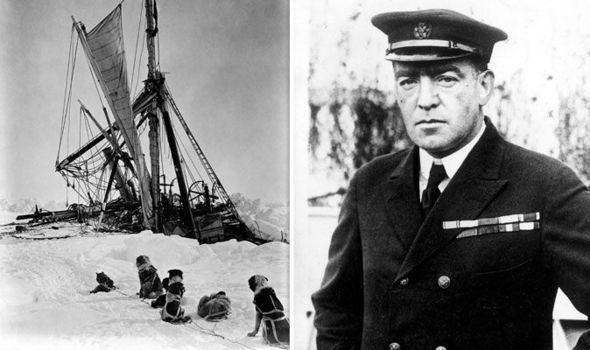Antarctic Quest 21

The Expedition
All discovery starts with first steps and in the case of Antarctica, these were made during the ‘Heroic Age’ of polar exploration in the 19th and 20th century. Many of the expeditions at that time recorded scientific observations and brought back specimens, providing information of an environment unperturbed by human impact. Little did the early explores know that they laid the foundations of Antarctic science that has become so crucial for predicting our future in the age of manmade climate change some 200 years later. So, it is only befitting that our Antarctic Quest 21 expedition in 2021/22 commemorates the iconic explorer and leader, Sir Ernest Shackleton, in the centenary year of his final expedition to the Antarctic.
The Route
Historical Context
It was in 1820 that Lt Edward Bransfield Royal Navy, made the first confirmed sighting of mainland Antarctica. That first sighting was the start of a period of intensive exploration of the Southern Ocean and Antarctica itself.
The late 1800s and early 1900s saw the ‘Heroic Age’ of polar exploration. Outstanding in their personal contributions to this period were the British explorers Sir Ernest Shackleton and Sir Robert Falcon Scott. However, early polar exploration had other great contributors from across the globe. Figures, such as Roald Amundsen and Douglas Mawson, were instrumental in unlocking the interior of the Antarctic continent. Others, such as Jean-Baptiste Charcot, who Scott liked, collaborated with and referred to as ‘The Gentleman of the Pole,’ explored the coast of the Antarctic Peninsula. Each, in their own way, undertook incredible challenges, forging into new territory. They also contributed immensely to the global pool of scientific knowledge about the Antarctic. All these individuals displayed the most outstanding levels of resilience, leadership, commitment, endurance, and exceptional vision. It could be argued that the person who most epitomised these qualities, was Sir Ernest Shackleton or, as he was better known, ‘The Boss’.
The story of Shackleton’s ‘Endurance’ expedition is well known as a tale of the ability of Shackleton and his men to overcome all odds in a battle of survival in the hostile Antarctic environment. When their ship was crushed by ice in the Weddell Sea in 1915, Shackleton and his men took to hauling their lifeboats across the sea ice in a desperate bid to reach safety. It is widely regarded that it was Shackleton’s legendary leadership, coupled with an unbelievable level of trust and commitment from his men, that enabled Shackleton to guide his team through some of the most extreme hardships imaginable and effect their safe rescue some nine gruelling months later.
Despite the tribulations he suffered during the Endurance expedition, Shackleton returned to the Antarctica in 1921 to lead a further scientific expedition. This expedition was originally known as ‘The Shackleton-Rowett Expedition,’ as the main financial backer was John Quiller Rowett, a wealthy individual who was committed to scientific research. It was only later that the expedition became more commonly known as the ‘Quest Expedition,’ after the MV Quest which was Shackleton’s final ship, obtained for the Antarctic Expedition. Sadly though, Shackleton’s ‘Quest’ was never to begin in earnest, as he suffered a fatal heart attack on the morning of 5 January 1922. It was Shackleton’s demise that has come to be regarded as the final chapter of the ‘Heroic Age of Antarctic Exploration,’ but it is those very values and Shackleton’s example that now inspires:
"Expedition Antarctic Quest 21"
It is Shackleton’s example that now inspires the “Antarctic Quest 21” expedition. In keeping with the values of the early explorers and Shackleton himself, Antarctic Quest 21 will travel into the untrodden regions of the Antarctic Peninsula to undertake essential science and exploration. Operating in this region is no easy task, with considerable climatic and environmental challenge. The only mechanism of movement across the unforgiving terrain is by manually hauling all that is needed for the team’s survival, as we as all the scientific equipment. ‘Man-haul’ is very much in the spirit of Shackleton’s heroic and historic achievements, and the expedition team will hold a commemoration service in his honour on the ice on 5th January 2022. This will take place on the East Coast of the Peninsula, overlooking the Weddell Sea, and the site of Shackelton’s legendary Endurance Expedition. In raising a ‘wee dram’ of Shackleton Whisky to his memory, we will seek to connect with Shackleton enthusiasts across the globe, as well as all those who are following us in his Spirit of scientific exploration, through the medium of modern telecommunications.
Background
In 2012, Paul Hart led a small team to cross the Antarctic Peninsula from west to east and back, undertaking scientific research to commemorate the 100th anniversary of Captain Scott reaching the South Pole. Man-hauling loads of more than 110kg, the team braved tremendous storms and the ever-present dangers of crevasse and avalanche. Katabatic winds gusting more than 100 mph threatened to destroy their tents and took temperatures as low as -55 °C. The team also had to deal with the mental impact of falls into crevasses. Despite this, for over two and half months they explored un-trodden areas of the Antarctic Peninsula and gained valuable data relating to climate change, geology and meteorology. Their work was hailed as an outstanding success by such venerable institutions as the British Antarctic Survey, the Scott Polar Research Institute and the Natural Environment Research Council.
The Purpose
Following on from the success of the 2012 ‘Spirit of Scott’ Expedition, the intention is now to continue the science and exploration programme on the Antarctic Peninsula by travelling over and then along the spine of the Antarctic Peninsula. In the 201st Anniversary year of the discovery of Antarctica, the team will cross the Forbidden Plateau from Portal Point to Foyn Point. At Foyn Point they will put in place and start scientific equipment that will transmit data used in climate research in real time. The team will then travel down the spine of the Peninsula and continue their data gathering for scientific research of climate change, meteorology, geology and glaciology. Of special importance will be the team’s collection of samples research into microplastics, metal and nutrient content of the snow on the Peninsula, revealing just how we are affecting the most remote areas on the planet.
Furthermore, as the early pioneers to Antarctica, the team want to inform, educate and inspire the general public on the subject of Antarctica. To these ends, a comprehensive educational outreach programme will be developed, working with schools, universities and the general public to broaden knowledge and understanding about Antarctica. The Commemoration Service for Sir Ernest Shackleton on 5 January 2022 will follow the lines of a naval Service based on Shackleton being a member of the Royal Naval Reserve.
As was planned for Shackleton’s Quest Expedition, the team of Antarctic Quest 21 will conduct the science projects:
- Gather snow samples from remote locations to evaluate long-range atmospheric transport of microplastic contamination
- Measure UVB radiation dose on the ground to establish the effect of ozone depletion on harmful radiation reaching the surface of Earth
- Emplace and set to work a GPS system to measure movement of the Antarctic Peninsula
- Measure snow deposition rates to contribute to models that predict sea-level rise as a result of climate change
- Undertake meteorological observations to identify changing weather patterns and ground-truth remote sensing measurements
- Gather snow samples to determine atmospheric deposition of metals that act as micro-nutrients to the food web in the Southern Ocean
What Makes This Different?
The expedition celebrates the values and the spirit of the heroic pioneers of Antarctic exploration and in particular Sir Ernest Shackleton. Their achievements continue to inspire today’s explorers and started the scientific research that is now manifested in the purpose of activities on the continent in the Antarctic Treaty. The core purpose of this expedition is for the team to contribute to the scientific understanding of Antarctica’s solid Earth, ice, ocean and atmosphere, and what recent and future environmental changes mean to every one of us. Finally, this expedition is also about extending that knowledge to future generations so that they may be inspired by the science and adventure of what our forebears have done.
Location Map of Expedition Area:

